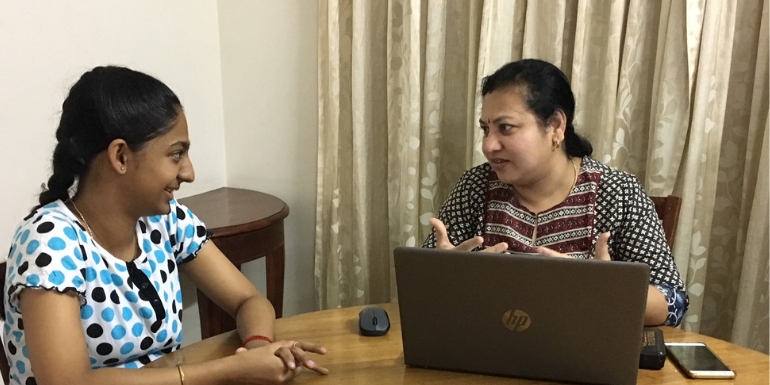The significance of Psychologists is indeed undeniable as they help people explain why they behave the way they do. Psychology in India is gaining massive importance, especially over the last few years. With tough competition growing all around and everything is seen as a comparison, people are more likely to face frustration. The onset of the pandemic has been the fuel to the fire. Unhealthy competition, unlikely comparisons, digital jealousy, unsatisfactory output, and many related factors contribute to the deteriorating mental health of the people.
This is where a Psychologist digs in and can help you overcome the problems you might be in. A professional Psychologist is responsible for understanding, analyzing, and explaining human thoughts and behaviour. They provide counselling and help to the people suffering from mental or emotional issues by evaluating their real problems.
Here in this blog, we will highlight the major roles of a Psychologist and when one needs his assistance. Further, we will guide you on the steps to becoming a Psychologist and shall also discuss their scopes in India.
Who is a Psychologist?
A psychologist is an expert who practices psychology and analyzes mental states, perceptual, cognitive, and social methods through experiments, observational, and evaluation. Psychologists specialize in studying how people work and communicate with the tools in their ambience. They help people overcome their issues through various methods, talk therapy being a significant one.
The types of Psychologists arent numbered and lets take a brief look at the types of Psychologists including their key roles.
1: Aviation Psychologists
They are responsible for studying the behaviours of Pilots and the related flight crew members. Moreover, Aviation Psychologists also carry out research on airline safety guidelines, developing training materials. Even, they help in choosing suitable employees.
2: Biopsychologists
Also known as Biological psychologists or physiological psychologists, they are responsible for studying and researching the brain and behaviour. They examine the neural behaviour bases and can understand different biological parameters that might influence how individuals think, or act. They also analyze how brain injury or diseases can be responsible for affecting behaviour.
3: Clinical Psychologists
People experiencing psychological issues or mental distress are treated by Clinical Psychologists. They are responsible for performing psychotherapy and developing treatment plans. Clinical Psychologists work in mental health clinics or hospitals and even go for private practice.
4: Community Psychologists
Community Psychologists are responsible for researching communication health issues. Moreover, they seek to educate the community group and create prevention programs. Their main aim is to bring positive changes at both the community and individual levels. They are solely responsible to address social issues, developing health and wellness ideas and creating policies to enact peoples lives.
5: Counseling Psychologist
A Counseling Psychologist takes care of individuals suffering from psychological disturbances, behavioural issues, emotional distress, stress, or any other related problems. Counselling Psychologists have tons of similarities with Clinical Psychologists.
Besides these five variations the other types of Psychologists are:
- Cross-cultural Psychologists
- Consumer Psychologists
- Comparative Psychologists
- Educational Psychologists
- Developmental Psychologists
- Environmental Psychologists
- Engineering Psychologists
- Health Psychologists
- Forensic Psychologists
- Industrial Organisational Psychologists
- Military Psychologists
- School Psychologists
- Personality Psychologists
- Social Psychologists
Who Needs a Psychologist?
Life is not without challenges and there might be situations when these emotions seem to be too overwhelming to handle. Those are the times when an individual might need to consult with a psychologist to come out of the problem they are in. The causes of fixing an appointment with a psychologist arent limited to a few but we have tried to point out the crucial ones in the points below.
Suffering from a Loss
Death is the saddest truth of life and at a certain point, everyone needs to handle the grief after losing a loved one. Grieving is common but constantly avoiding or unrealizing the truth can lead to longer problems. Here a psychologist might help the individual to cope up with the situation.
Stress
Stress in human life isnt a blue moon event however, anything overdosed can lead to bitter consequences. You can feel super anxious due to a lot of things, be it family or relationship problems or issues in the workplace or academics. Consulting with a psychologist can help you trace the root cause of your issues and help to overcome them flexibly.
Depression
Some common symptoms of depression include an exaggerated feeling of hopelessness. Depression is a common mental health issue where individuals lose interest in things, suffer from extreme fatigue, and often end up frustrated for not being able to handle emotions. Psychologists can help you analyze the issues and come out of them following a therapeutic process.
Phobias
You can even consult a psychologist to overcome typical phobias. Height phobia, cockroach phobia are common ones but individuals suffering from sitophobia (fear of eating) can invite the worst consequences. A professional psychologist can help you overcome the related phobia and live a life free of phobophobia.
Family or Relationship Problems
Relationships arent free of ups and downs. No denying the fact that a family or a relationship is the best thing in life but they also involve stress. While in many cases the issues are smoothly solved, the scenario isnt the same for others. Talking to a psychologist will help the individual fight with such issues and lead a better life.
Bad Addictions
Individuals with unhealthy addictions like drinking or drug use often end up in a worse health state. A psychologist helps them tackle these situations accordingly and assists them in overcoming the harmful addictions affecting their respective health.
How to be a Psychologist in India?
Now that you know the role of a Psychologist clearly, lets take a look at the steps for becoming a psychologist in India.
Step 1: Getting your Degree
The foundation step towards becoming a psychologist is passing your 10+2 with psychology as one of the subjects. Followed by your boards, you need to complete your bachelors in Psychology honors. Post completion, it is recommended to move forward with an M.A./M.Sc in Psychology or a related field like Social Work or Counseling. Further specialization can be acquired through M.Phil or PhD.
Step 2: Gathering Experience
While pursuing your degree, look. for opportunities to gain experience in the related field. Like if you are an Experimental Psychology enthusiast, consider approaching the professors to assist them in their research projects. If you plan to move ahead with Developmental Psychology, volunteering in mental health clinics can be a big bonus.
Step 3: Choosing Speciality
As discussed in the first point itself, getting a degree is most significant. There are plenty of fields of psychology and you need to pick one of your choices. If you wish to establish a career in Clinical Psychology, pursuing your masters in the exact field is a must.
Step 4: Get your Doctorate Degree
Having a doctorate degree adds double treasure to your resume. Moreover, most of the fields in Psychology expect professionals to have a doctorate degree. A paid internship experience is surely a bonus.
Step 5: Taking up Internships
Experience is valued everywhere. Knowledge and experience are a previous combination. Consider competing for a few internships before finally moving towards the bigger world. This not only adds value to your resume but also provides you with a practical insight into the outer world and prepares you to face all the coming challenges boldly.
Step 6: Start Practicing
Once you are done with all the prerequisites, its time to kickstart a beautiful journey! You can apply for jobs across different agencies or even come up with your own chamber.
How much does a Psychologist Earn in India?
Once you are a known name in this domain, you dont need to look back. A Psychologist earns a decent sum in India. The national average salary of a Psychologist is INR 28,656 in India. As a fresher, you can start with around INR 15,771/month that can go up to INR 51,569 and much more with experience.
Is a career in Psychology suitable for you?
Now, everything regarding the Psychologist job role is clear to you. The question is, is this a suitable role for you? Are you ready to follow the said steps and set up a career in Psychology? If these are the questions popping up in your mind, its time to address those immediately. Dont worry, we are here to help. Edumilestones brings at your service the perfect scope to connect with expert career counsellors at your location and discuss your queries. They will take you through a series of events to analyze your capabilities and suggest the best career options. Consequently, you will get to evaluate if a career in Psychology will be a good fit for you. Follow these simple steps:
Step 1: Visit www.edumilestones.com.
Step 2: Below "Find Career Counsellor Near You", in the red drop-down menu and select "career counselling for students".
Step 3: In the next box, enter your location and a big list with names of career counsellors will be displayed on the screen.
Step 4: Browse through it and book an appointment with any one of the experts of your choice.
Wrapping Up
This was all regarding the steps to becoming a successful Psychologist in India. Always make sure to follow your passion and make uniform decisions after analyzing situations. See you again in the next blog!













